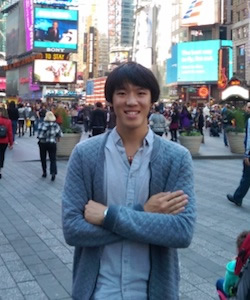A language is not just a bridge for oral communication, but also one of cultural communication. Three weeks into my study abroad program at Sciences Po, I’ve straddled the border between the traditional and emergent French culture, as seen through the perspective of languages. And in keeping with the methodology so revered at Sciences Po, I’ll be presenting my thoughts in the “dissertation in two parts” style, regarding the interplay between cultural assimilation and adaptation through language in Paris.
The French are proud of their language and not ashamed to make sure everyone gives it the proper respect. From the Academie Française where its members bear the titles of les immortels (the immortals) to the cafés once frequented by Hemingway and Sartre, speaking French is not about clarity. It’s about speaking correctly. The French will not hesitate to rectify a mistake. A conversation with an old Parisian seared this aspect of their culture in my memory. Two words. That’s all I was able to say before he interrupted with his correction, accented with widened eyes and a small lurch forward with his head. As I stammered through the rest of my sentence, the Parisian reclined on his chair: the spitting image of a pleased monarch who had just bestowed a portion of his treasure to his impoverished vassals. Blunt as it may seem, these interruptions manifest the old mentality of assimilating others into the French cultural sphere of influence. In other words, a “mission to civilize.”
Perhaps their behavior is justified. The French not only boast of a literary tradition that encompasses some of the most vibrant intellectuals in human history, but they also cannot wait to share that heritage with others. In the middle of lunch at a hole-in-the-wall café, the bespectacled owner eased shut the doors and signaled for silence. As all eyes turned to him, he began reciting a poem by Victor Hugo. With verses like: “For 6,000 years, war/delights us warring peoples,/and God’s work is in vain/when he made the stars and the flowers,” the poem illuminates why the French consider their language as a gift, even a blessing, to be shared with the world. By knowing French, you open the door to experiencing firsthand the traditional ideas that have laid the foundation of modern political thought. They consider it a privilege to assimilate into this rich legacy of sophistication.
On the other hand, Paris has quickly adapted to its role as a global hub, especially in regards to multilingualism. For every Parisian who turns up his nose at learning English, another will seek out every opportunity to refine her fluency. Invited by my friends to a “Franglish” session, where native-English speakers are paired with French speakers, I encountered a colorful crowd ranging from nuclear engineers to civil servants in the French Foreign Service. Yet everyone shared the same hungry gleam in their eyes. A hunger to flow with the current age. Their drive to improve their English personifies the spirit of modern Paris, that of perpetual self-improvement.
This drive extends to other languages as well, demonstrating how Paris is beginning to not only adapt to, but celebrate its mosaic of identities, no matter the difficulty. Among my French peers, learning Chinese, Korean, or Arabic is becoming increasingly popular. Despite the furrowed brows and splutters when they practice Chinese with me, their determination never wavers, much like the motto of Paris: “Battered by waves, but never sinks.” By working to accommodate the diversity of peoples within its borders, perhaps this represents a shift in cultural values among the new generation of French. They acknowledge that France needs the cooperation of all its peoples, no matter their origin, in order to keep pace in this globalizing world.
The French people, especially Parisians, have established a mentality of cultural superiority. Their insistence on speaking French, and speaking it correctly, encapsulates their traditional pride in the French intellectual heritage. But as Paris, and by extension France, faces an unprecedented challenge of integrating peoples from all over the world, perhaps this new spirit of looking outwards to new languages will guide France through these troubled times. After all, speaking a language builds bridges not only with the glorious legacies of the past, but also towards integrating those legacies with the interconnected world of the future.

